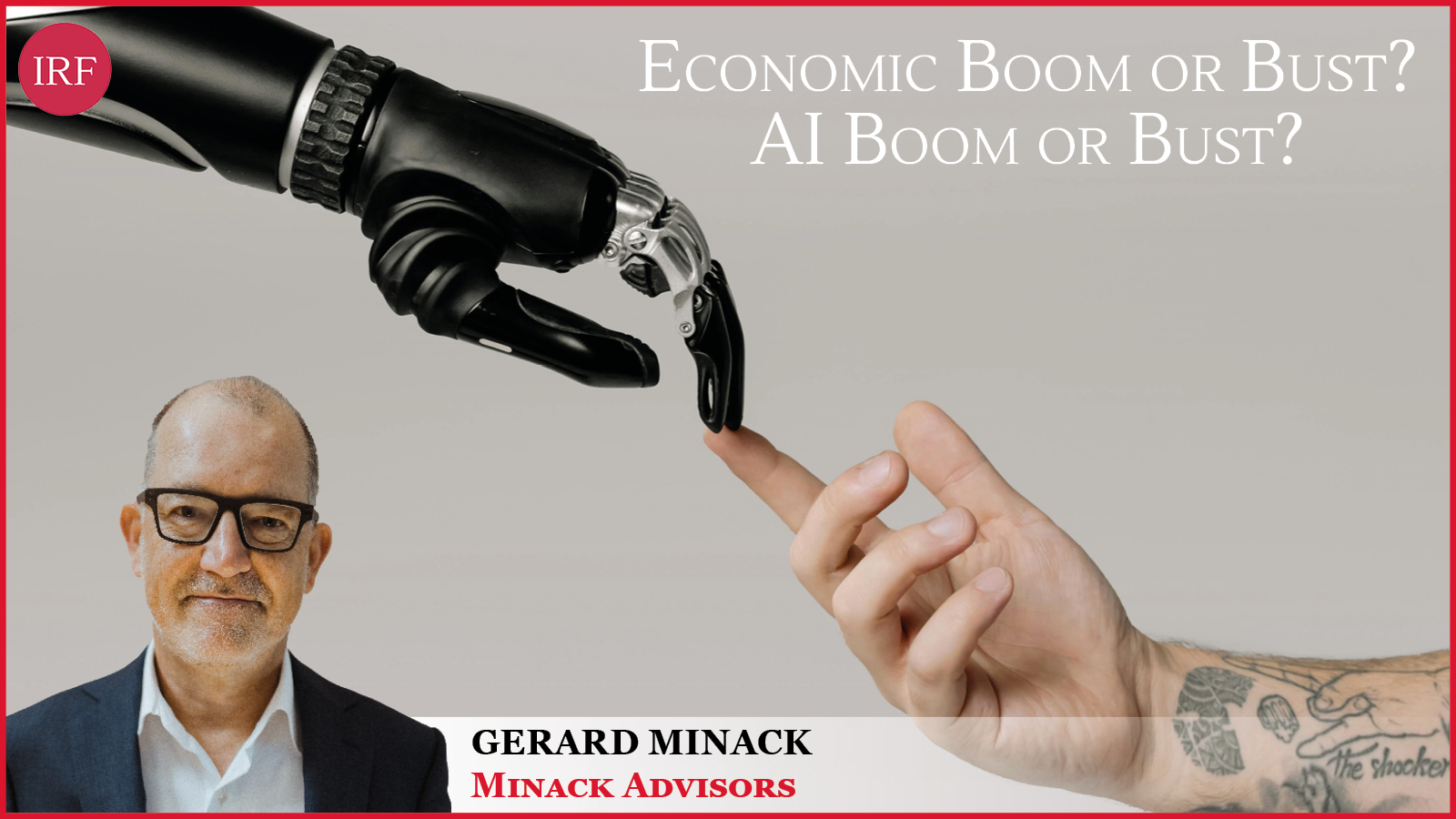Economic Boom or Bust? AI Boom or Bust?
Minack Advisors
Wed 08 Oct 2025 - 10:00 GMT / 11:00 CET
Summary
Gerard Minack opened by noting that while macro data has become less connected to market behaviour, his base case for the US economy is a “muddle through” scenario, though recession risk remains non-trivial. He argues that current rate market pricing is too dovish, as an independent Fed facing sticky wage and core service inflation is unlikely to cut as aggressively as priced. He identifies the Trump administration’s policy mix as a major adverse supply-side shock, citing three drivers: tariffs, tariff uncertainty dampening CapEx, and labour market constraints exacerbated by immigration policy shifts. While labour demand has cooled, labour supply has also declined, keeping wage growth firm, especially among lower-skilled cohorts, reinforcing sticky inflation.
On markets, Minack states that in a recession, the playbook is straightforward: Fed cuts more than priced and equities fall 30–40% from current elevated valuations. However, under muddle through, equity outcomes hinge on the AI thematic, which he believes has morphed from a MAG7 trade into a broader AI-led rally. He draws a parallel with the TMT bubble, warning that while AI may be transformative, the key risk is profitability of AI service provision, not technological impact. He expects current AI CapEx to eventually be dilutive, triggering a “show me the money” moment, derating the sector within months, not quarters. He maintains a structurally higher-for-longer rate regime view and sees better relative equity value outside the US, once the AI momentum fades.
Topics
The Trump Administration is an adverse supply shock for the US economy. Growth not only will growth slow, but it must slow.
Hard landing Vs Soft landing is critical on a 6 month view. Soft landing will see modest Fed easing and equities muddle through with AI upside. Hard landing the Fed will cut by at least 3% and equities fall by at least 30%.
AI may change the world. But that’s not the key investment question. The key question is: how profitable with the provision of AI services be? Markets are too optimistic.
